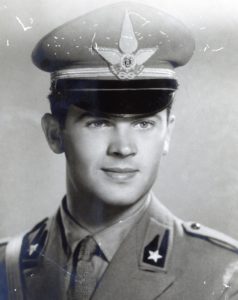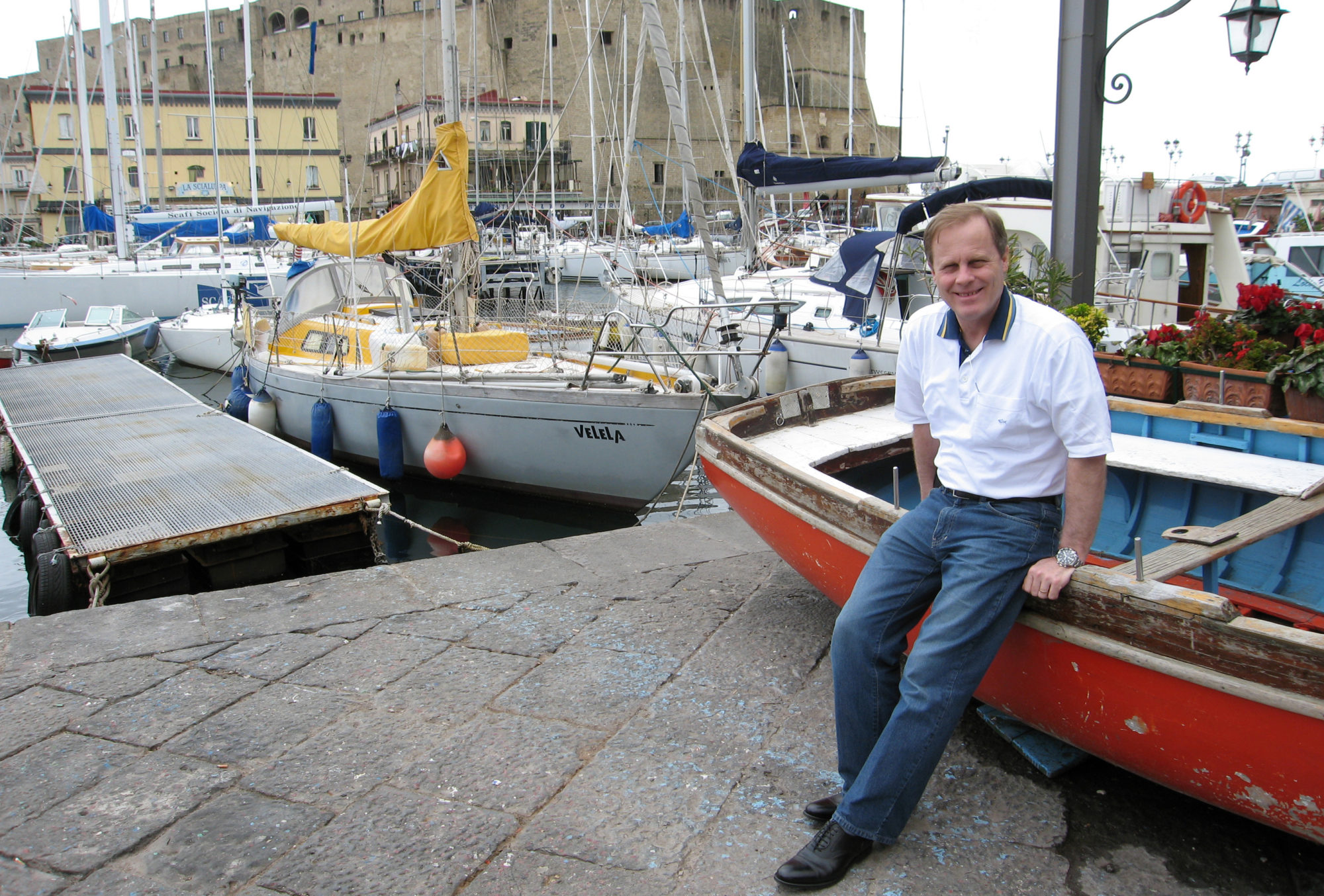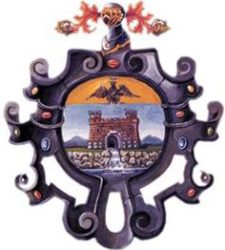
Dad was a disciplined man who built himself up into a respected success story from nothing, but not without ever understanding and acknowledging that God had helped him along the way.
And it did not all start out that promising.
At fourteen Dad became somewhat restless and I think got into trouble with his mother on a regular basis.
By the time he was sixteen he had run away from home to join the Italian merchant marine. Then to the joy of his mother he returned not too long afterwards and continued working as a door to door salesperson.
At about eighteen years, or so, he joined the Italian Army and while serving at Civitavecchia, the sea port north west of Rome, Dad worked his way up to becoming an army drill sergeant. One day the military personnel saw his mother coming to visit him with a borrowed car and thought that he might come from a distinguished or wealthy upper class family. So they told Dad that he should try to enter an Italian OCS program so that he could become an officer in the Italian Army. Italian Officers had not only a much higher pay, but they would also have carried a certain amount of respect and prestige the rest of their life. Dad, however, could not enter the officer’s program because he did not have a high school diploma.
But then one of his superior officers took a real interest in Dad and encouraged him to take the high school equivalency test and present himself for the State Exam. With super human effort Dad studied intensely often sleeping four hours per night and keeping himself awake by drinking coffee while the other soldiers had time off. He was able to prepare for all of the subjects and pass the Accountancy Exam which included a proficiency in Latin and other rather difficult subjects; sixteen I believe. In those days students were expected to memorize all of what was printed in the heavy Italian text books. God did give my father a very good memory, but still the amount of time he had to prepare for the exams would have been considered insufficient for the multitude of subjects he would be tested on. It came down to learning on your own five years of demanding subjects which he prepared for in 9 months with very little if anyone’s help. All exams had a substantial verbal component and the panel of professors could “reject you” if you even failed to answer correctly just a few of their questions. All they had to do was continue asking you things on the subject you seemed to be the weakest in and if you continued to falter – you were “sent away” as the Italian language states it.
Later Dad would often refer back to his role model, Vittorio Alfieri. This Italian poet hated academics and spent the first ten years of his productive life idling away his time. But then all of a sudden Alfieri changed. He became a very determined man and wanted to make his life count for something and so he had his personal servant tie him firmly to the chair in front of his desk and force him to remain there all day studying from a mountain of books that were piled up before him. Later Alfieri would say in a letter to a friend about that period in his life:
“I really wanted, I unquestionably decided, I very passionately determined….”
Dad also wanted to get a University degree, but after he went to the State run University of Rome right after the war to take the first few exams but found out that the professors were passing all the students at the exams, even those who had not learned the required subject matter. Now this may seem quite inconsequential, but it was not so for the more conservative Italians. It was the exact opposite of what had been the practice before the war. And so for many years Dad refused to take any exams until the professors had returned to running the academic program seriously as they had before the war. For this reason Dad did not receive his University degree until he was 40 years old and he did not qualify for some of the requirements to become a stockbroker until much later in life. It also meant it was much more difficult to pass the University tests. Matter of fact Dad was rejected at his last exam on the Italian Banking system – a first in his life that never was to happen again. He had to take one whole year to study and prepare so he could retest for the Tecnica Bancaria exam.
But then when Dad took the test the second time he did so well that the leading professor of the panel of three came down from behind his desk to congratulate him personally and give him a rarely given hug because of how well he had done on this very difficult test.
I think the two books he had to study from were something like 1000 pages. I still remember in the morning at 6:30 AM how he would walk outside my bedroom on the terrace and recite out loud the text from those books. This was exactly like Cicero, Virgil and Caesar read and studied their books. In classical times people read everything out loud even when they were by themselves with no one around. Today in Italy this same way of reading is still considered an excellent method of study. The goal being, that during your exam, you can then better parrot back to the professors exactly what you have been studying.
Dad and Vittorio Alfieri were both resolute men and both went from being undisciplined to becoming focused, well-organized and with clear goals in life. Alfieri became one of the great Italian men of letters with an amazing understanding of classical literature and a successful writer of tragedies and my Dad one of the most respected business men in the city of Rome.
All this required a great amount of time, effort and discipline on my father’s part. But Dad received his enjoyment from doing what would have been considered difficult or impossible by others but was an opportunity to grow in confidence for him instead. He viewed finishing a challenge as more important than starting it – just like he had already done in sports. In this he was very much like Manny Pacquiao.
My brother and sister both inherited some of my Dad’s discipline in studies and maybe I did also, although, for me it was later in life and not without some prolonged struggles.

